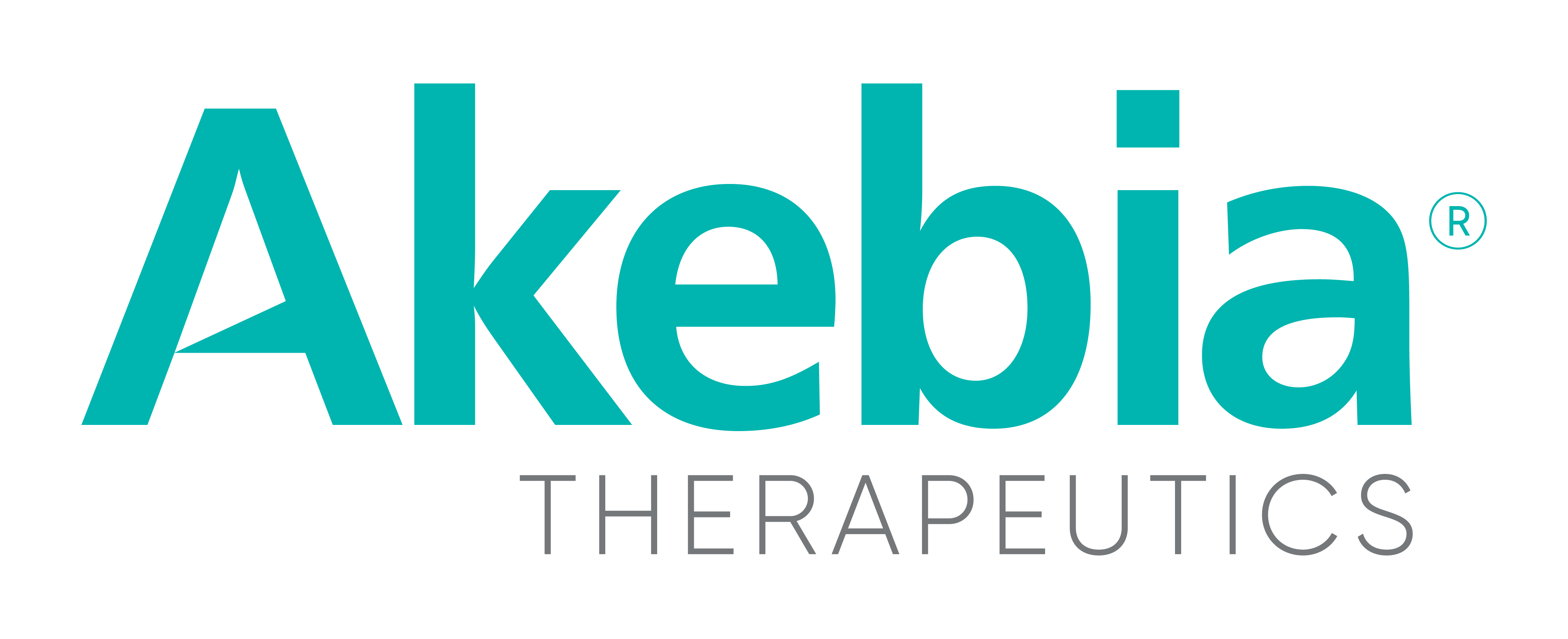Press Release
AkebiaShares Program: Current Approaches for Managing Hyperphosphatemia and Caring for Patients via Telehealth
Hyperphosphatemia is a condition in which a person's phosphorus levels are too high, potentially causing serious damage to the body. It is a primary hallmark of CKD, particularly in people with end-stage renal disease and on dialysis. The panelists will share information on hyperphosphatemia in people on dialysis, and discuss management including the value of a multidisciplinary care team, ongoing patient engagement and monitoring via telehealth, and the use of phosphate binders as a treatment option.
To register for the complimentary event visit: http://dwa.adobeconnect.com/endruu01ne5s/event/registration.html?campaign-id=akebia5.
The discussion will be moderated by
Akebia markets AURYXIA® (ferric citrate), a phosphate binder that contains iron, which is approved by the
About
About Auryxia® (ferric citrate) Tablets
Auryxia (ferric citrate) was approved by the FDA on
IMPORTANT SAFETY INFORMATION CONTRAINDICATION
AURYXIA® (ferric citrate) is contraindicated in patients with iron overload syndromes, e.g., hemochromatosis
WARNINGS AND PRECAUTIONS
- Iron Overload: Increases in serum ferritin and transferrin saturation (TSAT) were observed in clinical trials with AURYXIA in patients with chronic kidney disease (CKD) on dialysis treated for hyperphosphatemia, which may lead to excessive elevations in iron stores. Assess iron parameters prior to initiating AURYXIA and monitor while on therapy. Patients receiving concomitant intravenous (IV) iron may require a reduction in dose or discontinuation of IV iron therapy
- Risk of Overdosage in Children Due to Accidental Ingestion: Accidental ingestion and resulting overdose of iron-containing products is a leading cause of fatal poisoning in children under 6 years of age. Advise patients of the risks to children and to keep AURYXIA out of the reach of children
ADVERSE REACTIONS
The most common adverse reactions reported with AURYXIA in clinical trials were:
- Hyperphosphatemia in CKD on Dialysis: Diarrhea (21%), discolored feces (19%), nausea (11%), constipation (8%), vomiting (7%) and cough (6%)
- Iron Deficiency Anemia in CKD Not on Dialysis: Discolored feces (22%), diarrhea (21%), constipation (18%), nausea (10%), abdominal pain (5%) and hyperkalemia (5%)
SPECIFIC POPULATIONS
- Pregnancy and Lactation: There are no available data on AURYXIA use in pregnant women to inform a drug-associated risk of major birth defects and miscarriage. However, an overdose of iron in pregnant women may carry a risk for spontaneous abortion, gestational diabetes and fetal malformation. Data from rat studies have shown the transfer of iron into milk, hence, there is a possibility of infant exposure when AURYXIA is administered to a nursing woman
To report suspected adverse reactions, contact
Please see full Prescribing Information.
Akebia Therapeutics Contact
ir@akebia.com
![]() View original content to download multimedia:http://www.prnewswire.com/news-releases/akebiashares-program-current-approaches-for-managing-hyperphosphatemia-and-caring-for-patients-via-telehealth-301188803.html
View original content to download multimedia:http://www.prnewswire.com/news-releases/akebiashares-program-current-approaches-for-managing-hyperphosphatemia-and-caring-for-patients-via-telehealth-301188803.html
SOURCE


Akebia Therapeutics, Inc.
245 First Street, Suite 1400
Cambridge, MA 02142
+1 617.871.2098 phone
+1 617.871.2099 fax

